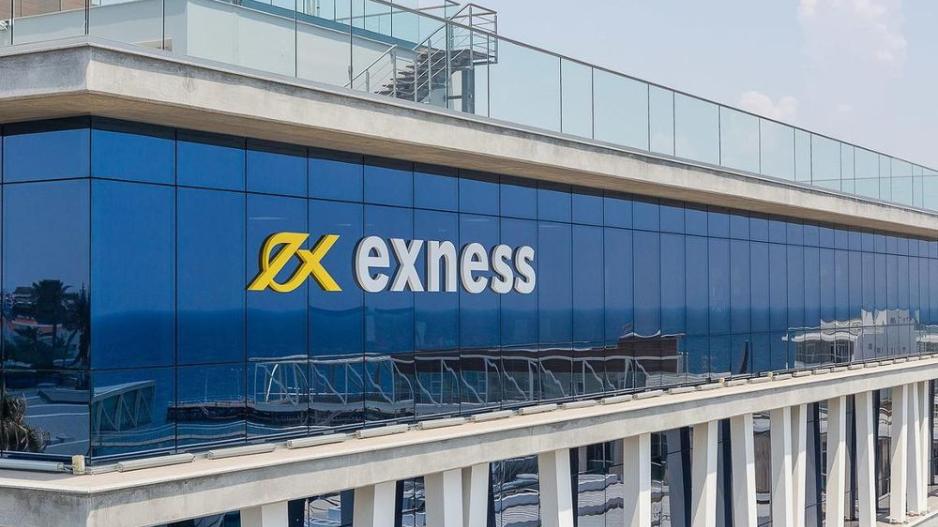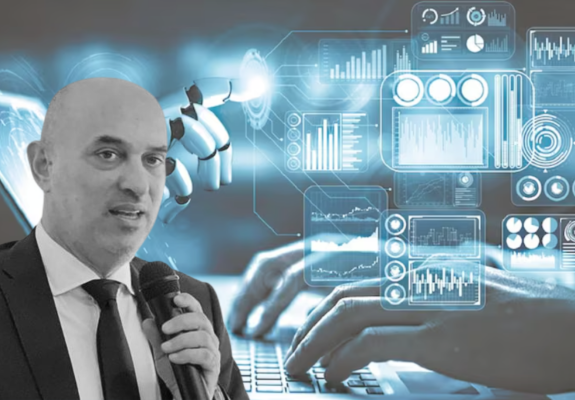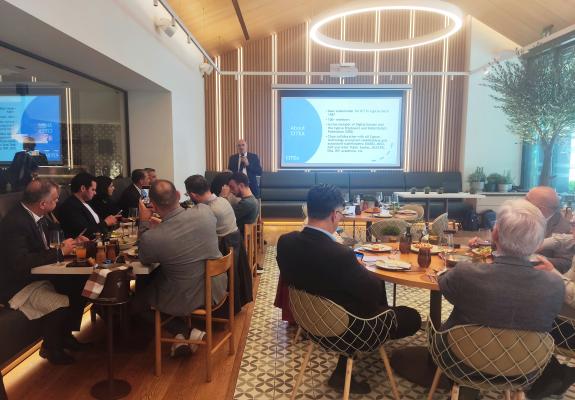Exness’ Elena Krutova Speaks on Incorporating Ethics and Embracing Vulnerability
The Chief Administrative Officer Shares Insights on the Future of Work and the Potential Banks-Fintech Cooperation
Exness, a global multi-asset broker that was founded in 2008 with the mission to reshape the online trading industry, and the largest retail CFD market maker in the world, has been committed to creating the ultimate trading experience since its inception. Headquartered in Limassol, Cyprus, the company has heavily invested in technology and infrastructure to achieve this goal. In this interview with Elena Krutova, Chief Administrative Officer at Exness, we explore the company's dedication to ethics and corporate social responsibility, which has become an integral part of Exness' culture. Elena also discusses Exness' hiring priorities, as well as the recent HR ShakeUp event.
Moreover, Elena reflects on her role's challenges, emphasizing the significance of effective decision-making and communication in managing day-to-day operations. She shares valuable insights from her career journey, acknowledging the importance of learning from mistakes and promoting a culture of vulnerability. Lastly, Elena delves into Exness' approach to staying ahead of evolving trends in the future of work, while also sharing the company's perspective on collaboration between banks and fintech firms, aiming for mutual benefits in the financial sector.

At Exness, ethics and social responsibility are not just words to put on posters. When COVID-19 happened, we realized that there were other complex problems in the world that still needed solving - by governments, society, or people. And that sometimes, it has to be our common task to step up and do something meaningful - and beyond our commercial focus.
So we started investing time and effort into seeking out where Exness could help. We donated firetrucks and other equipment needed to fight wildfires across Cyprus, and we continue to support educational efforts in many countries through our scholarship program. And the difference is that we involve our employees in these initiatives: many of them want to help and do something important. CSR has become an essential part of Exness culture.
In Exness we always focus on expertise: it’s very important for us to be at technology’s cutting edge and to deliver best-in-class products. Deep technical knowledge and capability are key requirements for almost all the roles we fill.
We emphasize this in one of our core values “Being tech professionals”, meaning that we embrace technological expertise in all the fields we operate in. AI, blockchain, and data science - we invest in skills development in these areas as well. It’s a major advantage when your employees can do something no one else can. And we don’t just hire expertise from the marketplace, we develop it internally too.

Thanks for paying attention to our first HR ShakeUp. We truly believe that community development for professionals in Cyprus, either technical or HR, is good practice for every company. We all have ideas and knowledge to share, and building such communities present great opportunities to be among like-minded people.
In the first meeting, we talked about HR’s key performance indicators (KPIs) and how businesses can measure the success of their people functions. We agreed it’s not a simple task, but one that goes beyond measuring turnover or employee engagement. Another hot topic was AI in HR work. It has become especially "hot" since the soaring popularity of ChatGPT. Luckily, all of us conceded that no artificial intelligence can replace the human touch in communications and HR work.
We were pleased to see how many people attended and how interested they were in honest discussions about leadership, HR practice, and emerging trends in HR. We plan to continue running HR ShakeUp events, inviting more speakers to share views and ideas on how the sector can develop in Cyprus.
Contrary to popular belief, leadership is not an easy position
Being among those who lead the business every day is not a simple task, you are right. Contrary to popular belief, leadership is not an easy position where you merely delegate whatever tasks you have, expecting them to be carried out properly every time. Your success stems from the expertise you develop in decision-making within your job function, and my previous five years in Exness has helped me immensely here.
Senior positions also demand a unique set of communication skills: being able to talk and listen to people honestly and openly; give them support and care when they need it; while still being a leader with high expectations. But in my diverse function covering people, finance, legal and compliance, there are hundreds of decisions to be made which can affect people’s lives, our business operations or the corporate risks we face. Maintaining the ability to continue to make those decisions is the biggest challenge, I think.
Well, it is hard to work without making any mistakes! And during a 17-year career, I’m sure I’ve made a few. Some are related to career choices: I probably could have been more patient and less emotional in some of my early career decisions. Also, I tended to trust people easily, which may have caused issues later.
None of us is perfect, so having a place where you can honestly be yourself and talk about this kind of vulnerability is very important
Recently we had an internal event called the ScrewUp Meetup, where the leadership shared with our employees, details of mistakes we’d made at Exness, and how we’d managed them. I gave one instance where we chose the wrong software tool, which went on to cost us time and money. It was great that we were able to find the motivation and confidence to admit to our mistakes, rather than make the situation worse.
I’m really glad that we began this practice at Exness, openly discussing our mistakes and issues. None of us is perfect, so having a place where you can honestly be yourself and talk about this kind of vulnerability is very important.
These technological trends are fast becoming the norm for many corporations and Exness is no exception. We’ve engaged in hybrid working for more than three years, our internal decision-making paradigm is based on a scientific and data-driven approach where tools such as chatbots, predictive analysis, and AI are routinely being used in different business fields.
As for my take on the 4-day working week, I’m a bit sceptical: I think the required workload would remain the same, whatever the number of hours you subscribe to. Your people would only start working ‘unofficially’ if they felt there were not enough hours in the official working day. Such an approach could then lead to further severe consequences such as constant anxiety or burnout. The idea of unlimited holidays is similarly flawed: research confirms that employees take even fewer days off than they did previously, when such a policy is introduced. So it can work against the original vision.
At Exness, we’re exploring new models in decentralized decision-making
Instead at Exness, we’re exploring new models in decentralized decision-making. We’re looking at work scenarios where hierarchical structures are balanced with flatter, more democratic approaches: working groups, committees, and expertise circles. The concept of the Decentralized Autonomous Organization (DAO) is only just evolving, but there are already some interesting elements companies can incorporate.
Collaboration between banks and fintech companies could be mutually beneficial. Banks can leverage the strengths of fintech companies to enhance customer-facing products and internal operations, while fintech companies could draw on the long-established experience of banks within the financial services sector.
Fintech companies, being more agile and adaptable, can help banks navigate the rapidly changing sector, especially in today’s landscape of AI and machine learning. These upstarts can also help improve customer experience by removing longstanding friction in processes from money transfers to loan applications. Add to that, streamlining internal operations by optimizing processes such as due diligence, and other management tasks.
Banks in turn have a mentoring role to play in collaborating with fintech firms with their expertise in regulatory frameworks and compliance. This way, nimble fintech companies - used to operating under the mantra “move fast and break things” - can ensure that their rapid innovations meet the necessary regulatory requirements, and promote customer protection and industry standards at the same time.







